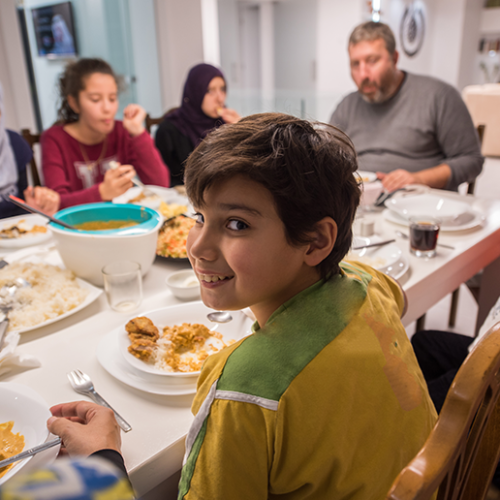The evolving challenges of modern parenting

Rachna Narwekar is a devoted mother and an accomplished children’s educator and remedial therapist. She talks to us about the shifting demands of parenting in this modern age.
Rachna Narwekar has a wealth of expertise and experience in parenting and children’s wellbeing. She runs a children’s recreation and experience centre where all activities are created to support children’s social, emotional and cognitive development. The aim of this is to emphasise their holistic development, and it’s this rounded approach that she recommends for modern parents. Let’s take a closer look at how this translates into your day-to-day experience of raising kids.
A full-time job
There is no one way to be a perfect parent. We each have to find our own way to be a good one! There can be a lot of external pressure to do things a certain way or to give more. It’s important to remember that parenting is the most demanding job in the world. As such, be kind to yourself as you work out the way to parent that works best for you and your family. There is no practice run and as much as many of us would love it, unfortunately the task of raising children does not come with a manual to make it clearer. Parenting is a process!
Challenges
Was it easier for our parents and grandparents? How did they manage to keep us all connected as a family? How did we become successful individuals? These are questions that I hear from many parents as they face the difficulties of parenting in this modern era. Let’s dive into some of the common challenges faced by parents of today.
New family structures
Our parents typically lived in a joint family set-up with many extended members living together in the same space or very nearby, which meant more support and love for each family member, adults and kids alike. Today’s families are nuclear or even single parents living with one child, meaning there’s now more pressure on each parent without the built-in support of other adults at home.
Higher expectations
Expecting excellence from children adds to the pressure not just on the child but also on the parents. Attending school, finishing homework on time, extracurricular activities and screen time stimulate the brain, which can lead to emotional exhaustion.
Information overload
Overexposure to information and constant use of technology is one of the most challenging issues for today’s parents. Conversations while driving to school or at the dinner table have drastically reduced, replaced by an absorption in our phones or iPads. It’s really important for your child’s mental health, proper development and for the quality of your relationship to intentionally buck this trend by limiting screen time and spending time daily talking together without distractions.
Solutions
What can we, as parents, bear in mind in order to overcome these challenges?
Choose your battles
As strange as it may sound, pick your battles with your children wisely. Certain things like finishing homework and brushing your teeth before bed are not negotiable. That said, it is okay to bend the rules every once in a while.
Practice acceptance
Accept the person your child is turning into. Let them bloom into the individual they need to become. Each of us is unique and special in our own way. Try to create a stable emotional environment, as well as the space and freedom needed for their growth.
Foster curiosity
If you want your little one to become a globally aware citizen, it may be best to allow them to question things around them and answer those questions with as much truth as possible to satisfy their curiosity.
Embrace failure
Let them know it’s okay to fail. Show and tell them how you may have failed at some point in your life and how it was actually a great lesson towards success. Share what you learned from those failures and encourage them that they have many ‘attempts’ and a failure is simply a ‘first attempt’.
Be the example
Set ground rules for the use of digital devices at home. No phone at the dinner table is an essential rule to follow. Meal time should be a time to talk about your day and share the good and not-so-good parts! You know what’s best for your child. It’s great to get advice from other parents, but you need to trust your instinct and act on that for your child’s betterment. As parents, we should be patient, objective and present for our children as much as we can each day.
Self-care and support
Build a strong support system around you, and remember you don’t have to do it alone. It really does take a village to raise a child, so don’t be afraid to ask your tribe for help! Additionally, take quality time out for yourself and as a couple to unwind. A healthy relationship with yourself and your partner translates into a happy household. Parenting works best if we can recognise that parents should take care of themselves too, in order to be effective caregivers.
At the end of the day, parenting is a unique journey that is highly individualised to the personalities you have at home. Some of the best things to focus on can be some of the most traditional – the benefits of having other adults that you trust around you for support, the importance of talking together without distractions and the need to have firm boundaries around screen use. There is no one-size-fits-all answer, but with these tips, you should be able to find the balance that works best for you!
Image Credit: ShutterStock











Comments